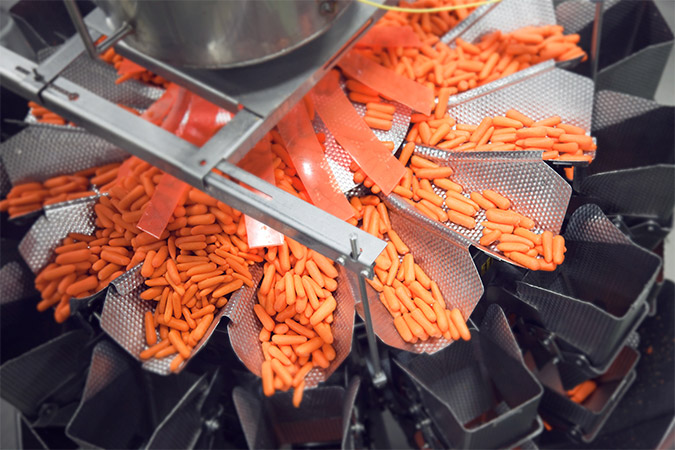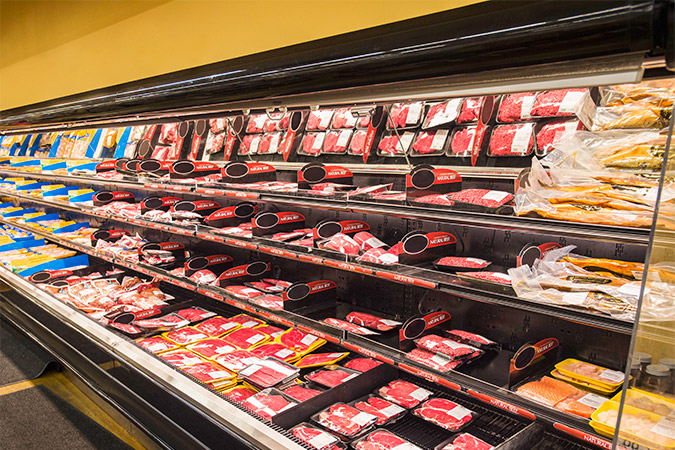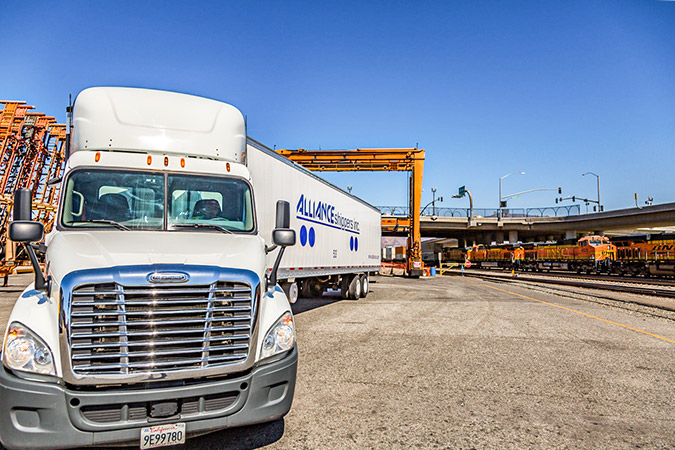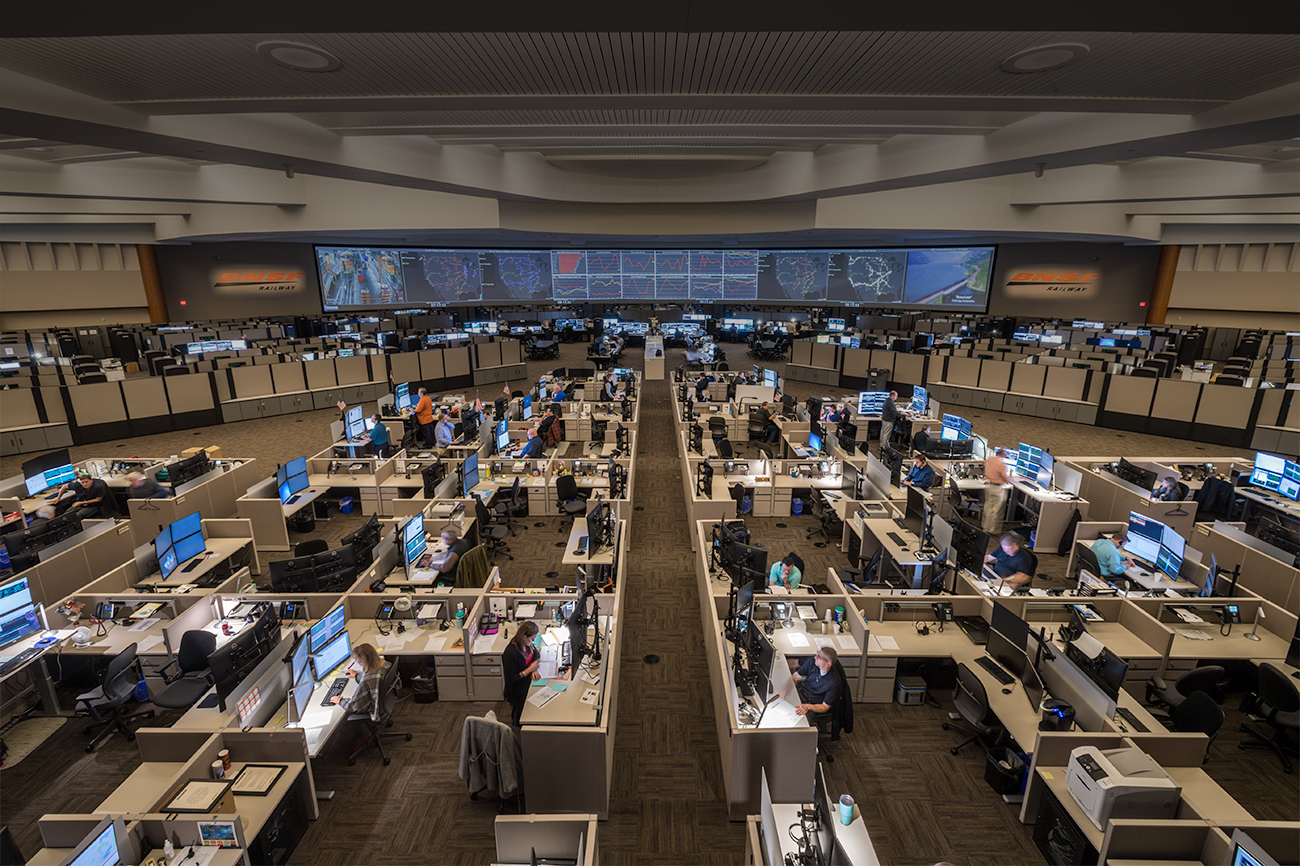BNSF, producers keep food moving to America’s store shelves

Whether you’re going to grocery stores or ordering online, you know the supply chain is contending with extraordinary demand. Since the outbreak of COVID-19, families that might have relied more heavily on dine-in and takeout restaurants are now preparing and eating meals at home as they shelter in place.
That means a lot more grocery shopping. The public’s uncertainty about how best to prepare in the early weeks of the pandemic resulted in temporarily empty shelves, limits on purchases of some items and long checkout lines.
Food producers are working together, adapting and finding solutions. The sight of a bare shelf at the store is unusual in this country and can be disconcerting. But the U.S. is not going to run out of food. According to the U.S. Department of Agriculture, there are no nationwide shortages – just cases of certain foods being out of stock in the short term before stores can replenish.
Safely and reliably getting food to America’s dinner tables is a job we take seriously at BNSF. We are part of the nation’s critical infrastructure, and we have a long history of moving perishable and non-perishable food and beverages.
Here’s how we and our food-producing customers are bringing proteins, vegetables, bread and frozen foods to store shelves during a challenging time for Americans.

Bread of life
One railcar of flour is equal to 258,000 loaves of bread. That’s a lot of PB&J sandwiches, a comfort food at any time, let alone now.
Store-bought loaves of bread are always a staple, but now with extra time on their hands people are baking. That means more demand for flour.
BNSF customer Ardent Mills is the largest U.S. flour miller, with 35 community flour mills and mixing facilities across the U.S., Canada and Puerto Rico.
“We’ve seen increases and decreases across our various segments during this time of shifting patterns in consumption. However, Ardent Mills remains fully operational and continues to meet customer needs,” said Vice President of Supply Chain Jeff Zyskowski.
When it was clear the pandemic was not going to be business as usual, BNSF immediately contacted Zyskowski and his team to find out how business might shift. “We received phone calls from regional contacts who inquired whether our service needs at individual mills needed adjustments. Where our change in demand did require additional service, BNSF was able to provide it quickly, with no pushback or red tape.”
Ardent Mills has appreciated this proactive communication, along with continued dependable, consistent transportation, Zyskowski said. “With reliable service and steady movement, BNSF has provided stability in supply chains that might otherwise have become unpredictable.”

Eat your carrots
Maybe carrots won’t let you see in the dark, but they’re still good for us. Luckily, they’re tasty, too.
Bolthouse Farms has grown carrots for more than a century, and over the years added premium juices and smoothies and dressings. The company plants, grows and processes carrots primarily in the San Joaquin Valley in California.
When the pandemic started, bagged carrots flew off the shelf. Bolthouse saw demand double. Retail stores are Bolthouse’s primary outlets, and the company also fulfills school lunch programs, which are continuing during the pandemic.
“We had a boom in demand for the first three weeks as people were loading up, but luckily we had extra acres to support the demand,” said General Manager of Bolthouse Farms Zak Karlen, explaining more carrots were already planted last fall in anticipation of the Easter season.
With a deluge of orders and the supply to meet them, Bolthouse ramped up production from five to seven days a week. To get the products to market meant adding more BNSF refrigerated boxcars, from an average of 45 a week during normal conditions to 54 in today’s new normal.
“BNSF has been very accommodating, adding Saturday switching and being proactive with getting us the additional boxcars,” Kalen added. “We’ve had flawless service, with four- to five-day transit time [to Chicago]. This delivery is hyper-critical.”

The meat of the issue
Our role in the protein chain starts with providing seed and feed to protein producers and feedlots. Then we move all the processed product, from tallow and bone meal to finished product like frozen chicken nuggets and cuts of beef.
“Meat packing plants essentially have three product outputs: the meat we purchase at the store or for export, the liquid byproducts such as tallow and the dry products like bone meal,” according to BNSF’s Matt Loomis, manager, Sales, Industrial Products.
The main regions of production BNSF serves are West Texas, Colorado, Kansas, Iowa, Illinois, Nebraska and South Dakota. During COVID-19, we’re adjusting our operations in these areas as needed to accommodate producers, particularly meat packers that initially increased production to meet demand.
“Early on, there was increased production to keep up with demand, which required us to adjust our resources accordingly,” said Kristin Hansen, director, Marketing, Ag Commodities. “The shelves, which were low or empty for weeks, are being replenished and we remain laser-focused on meeting our customers’ service needs.” As COVID-19 continues to put additional strain on the protein supply chain, communication between these customers and BNSF remains a top priority.

Keeping it chill
If it’s fresh or frozen, temperature-controlled intermodal (TCI), combining over-the-road truck and rail, is one of the most consistent and economical ways to get temperature-sensitive food and beverages where they need to go. With the pandemic’s arrival, there was a huge spike in demand for TCI transportation.
“Working together, we find out what fits best with our customers. The attitude of everyone in the supply chain has been ‘We’re all here to help,’” said BNSF’s Jon Tinker, director, Sales, who works with TCI intermodal companies.
Among our TCI intermodal shipping partners is Alliance Shippers, one of the earlier providers of this service. Alliance has about 1,700 temperature-controlled trailers in its fleet and will soon add temperature-controlled containers. The equipment – which keeps temperatures as low as minus 10 degrees – is finite. So when COVID-19 put pressure on Alliance’s customers, the company reacted accordingly.
“We had a big uptick the first two weeks as everyone was filling warehouses,” said Ed Wright, Alliance’s Vice President, Temperature Control. “Despite the challenges, our strategy didn’t change, though, how we executed it did during the crunch. In the end, we were able to continue to provide service on schedule.”
To keep up with demand, Alliance needs to reliably get temperature-sensitive food – produce, like tomatoes, and frozen foods, like French fries – from the West Coast to the East in five days (at Chicago, BNSF hands rail cars off to an eastern Class 1 railroad for the rest of the trip).
“The transit times BNSF gives us are consistent and can compete with trucks. Our customers, even when everything was volatile, knew we would deliver when expected,” said Wright. “We’re thankful for the history and relationship we have with BNSF.”


